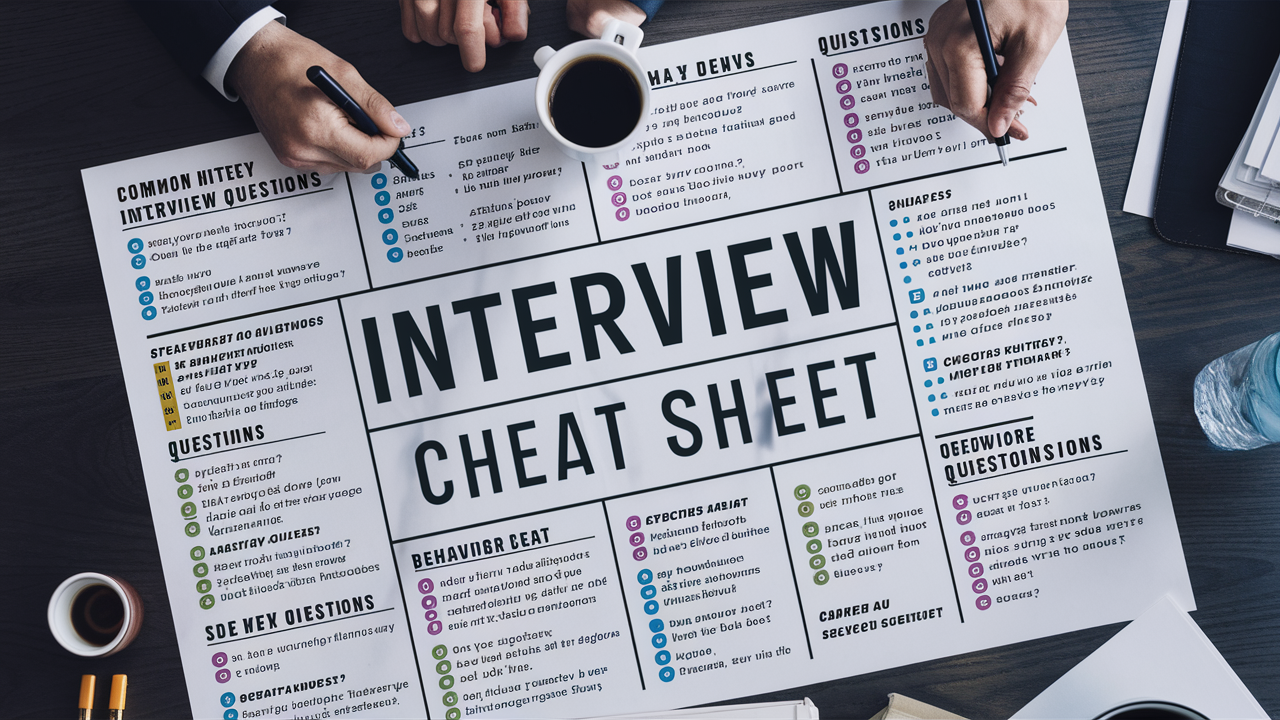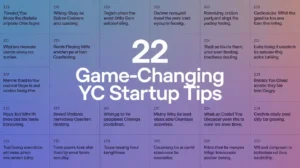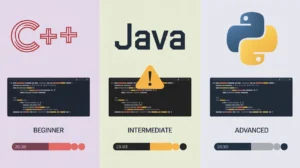Navigating the job interview process can be a daunting task, but with the right preparation and mindset, you can turn it into an opportunity to shine. This comprehensive job interview cheat sheet is designed to help you showcase your skills, experience, and personality effectively. Let’s delve into the key strategies and tips that will enable you to ace your next job interview.
Tell Me Your Story
When asked to share your story, it’s essential to provide a concise yet impactful overview of your professional journey. This is your chance to connect the dots between your past experiences and the role you’re applying for.
Crafting Your Narrative
Start with a Strong Opening: Begin with a brief introduction that highlights your current position and your overall experience in the industry.
Highlight Key Milestones: Choose a few significant accomplishments or roles that demonstrate your growth and expertise. Explain why you moved from one job to another, focusing on what you learned and achieved.
Connect to the New Role: Emphasize why your background makes you a perfect fit for the new job. Mention specific skills or experiences that are directly relevant to the position.
Example: “I began my career as a marketing coordinator at XYZ Company, where I developed a deep understanding of digital marketing strategies. Over the next five years, I advanced to a marketing manager role, leading successful campaigns that increased our online engagement by 30%. Now, I’m excited to bring my expertise in digital marketing and team leadership to your company, which is renowned for its innovative approach to marketing.”
What Sets You Apart from Other Candidates?
Employers want to know what unique qualities or experiences make you the best fit for the job. This question is your opportunity to showcase your strengths and differentiate yourself from the competition.
Highlighting Your Unique Value
Identify Your Top Strengths: Choose five strengths that are most relevant to the job description. These could be technical skills, soft skills, or specific experiences.
Provide Examples: Back up each strength with a concrete example from your past roles. This adds credibility to your claims and helps the interviewer see how you apply these strengths in real-world situations.
Example: “One of my key strengths is my ability to lead cross-functional teams. In my previous role, I managed a team of 10, including members from sales, IT, and marketing. We successfully launched a new product line within a tight deadline, increasing our market share by 15%. Additionally, my proficiency in data analysis has allowed me to optimize marketing campaigns, resulting in a 20% increase in ROI.”
What Are Your Weaknesses?
Discussing weaknesses can be tricky, but it’s an excellent opportunity to demonstrate self-awareness and a commitment to personal growth.
Addressing Weaknesses Constructively
Choose a Non-Critical Weakness: Select a weakness that doesn’t directly impact your ability to perform the job. Avoid generic answers like “I’m a perfectionist.”
Explain How You’re Improving: Show that you are proactive about improving yourself. Mention specific steps you’ve taken to address the weakness and the progress you’ve made.
Example: “I used to struggle with delegating tasks because I wanted to ensure everything was done perfectly. However, I’ve learned that effective delegation is crucial for team success. I’ve taken courses on leadership and have been practicing delegation by assigning more responsibilities to my team members, which has improved our overall productivity.”
Why Do You Want to Work Here?
This question gauges your interest in the company and whether you’ve done your homework. Demonstrate your enthusiasm and align your career goals with the company’s mission and values.
Research and Personalize
Research the Company: Learn about the company’s products, services, culture, and recent achievements. Use this information to craft a thoughtful response.
Align with Your Goals: Explain how the company’s values and goals resonate with your career aspirations.
Example: “I’m particularly impressed by your company’s commitment to sustainability and innovation. As someone passionate about environmental conservation, I’m excited about the opportunity to contribute to projects that make a positive impact on the environment. Your recent initiative to reduce carbon emissions aligns perfectly with my values, and I’m eager to bring my project management skills to support these efforts.”
What Is the Hardest Problem You've Ever Worked On?
This question is designed to assess your problem-solving skills and resilience. Highlight a challenging situation and how you overcame it.
Structuring Your Response
Describe the Challenge: Briefly outline the problem, ensuring it was a significant challenge that required effort to solve.
Explain Your Approach: Detail the steps you took to address the problem. Focus on your thought process and the strategies you employed.
Highlight the Outcome: Share the results of your efforts, emphasizing the positive impact.
Example: “One of the toughest challenges I faced was when our main supplier went out of business unexpectedly. This disrupted our supply chain and risked delaying our product launch. I quickly assembled a task force, researched alternative suppliers, and negotiated favorable terms with a new vendor within two weeks. As a result, we were able to launch on time, maintaining customer trust and satisfaction.”
Share an Experience When You Identified a Missed Problem. How Did You Discover It, and What Action Did You Take?
This question tests your attention to detail and initiative. Describe a situation where you proactively identified and resolved an issue that others might have overlooked.
Demonstrating Proactivity
Identify the Overlooked Issue: Clearly state the problem and how it was missed by others.
Detail Your Discovery Process: Explain how you discovered the issue, emphasizing your diligence and observational skills.
Describe Your Solution: Outline the actions you took to address the problem and the positive outcome.
Example: “While conducting a routine audit, I noticed discrepancies in our inventory records. After investigating further, I found that the issue was due to a software glitch that was misreporting stock levels. I immediately informed the IT department and worked closely with them to rectify the error. This proactive approach prevented potential stockouts and ensured accurate inventory management.”
Describe a Situation Where You Had to Manage Multiple Responsibilities. How Did You Get Everything Done?
Multitasking and time management are crucial skills in any job. Use this question to highlight your ability to handle various responsibilities efficiently.
Showcasing Your Organizational Skills
Outline the Situation: Describe the context where you had to juggle multiple tasks or projects.
Explain Your Approach: Detail how you organized your work, prioritized tasks, and managed your time.
Highlight the Results: Share the outcome, emphasizing how your approach led to successful completion of all responsibilities.
Example: “In my previous role, I was responsible for managing three major projects simultaneously. I created a detailed project plan for each, set clear priorities, and used project management software to track progress. By holding regular check-ins with my team and delegating tasks effectively, we completed all projects on time and within budget, exceeding our clients’ expectations.”
Tell Me About a Time You Faced an Ethical Dilemma. How Did You Handle It?
This question assesses your integrity and decision-making under pressure. Discuss an ethical challenge you encountered and how you resolved it.
Demonstrating Integrity
Describe the Dilemma: Clearly outline the ethical issue and why it was challenging.
Explain Your Decision-Making Process: Detail how you weighed your options and the principles that guided your decision.
Share the Outcome: Highlight the resolution and any lessons learned.
Example: “I once discovered that a colleague was falsifying sales figures to meet targets. This was a difficult situation as we were close friends. However, I knew it was important to maintain integrity. I reported the issue to my manager, who conducted an investigation. The colleague was given a chance to correct their behavior with proper training. This experience reinforced the importance of ethical conduct in the workplace.”
What Are Your Greatest Strengths?
This question is your opportunity to highlight your key strengths and how they make you an ideal candidate for the role.
Emphasizing Relevant Strengths
Identify Key Strengths: Choose strengths that are directly relevant to the job description.
Provide Examples: Back up each strength with specific examples from your past experiences.
Example: “My greatest strengths are my analytical skills and my ability to work under pressure. In my previous job, I was often tasked with analyzing complex data sets to inform business decisions. I consistently provided actionable insights that led to a 15% increase in operational efficiency. Additionally, I thrive in high-pressure environments, having successfully led my team through multiple tight deadlines without compromising on quality.”
Tell Me About a Time You Missed a Deadline. How Did You Handle It?
Discussing a missed deadline shows how you handle setbacks and communicate under pressure.
Handling Missed Deadlines
Be Honest: Explain the circumstances without placing blame.
Describe Your Response: Highlight the steps you took to mitigate the impact.
Share Lessons Learned: Explain how you improved your processes to prevent future issues.
Example: “I once missed a deadline due to unforeseen technical issues. I immediately informed my supervisor and provided a revised timeline. I also worked extra hours to ensure the project was completed as soon as possible. This experience taught me the importance of contingency planning, and I’ve since implemented backup plans for all critical projects.”
Why Do You Want to Leave Your Current Role?
Employers want to understand your motivations for changing jobs. Focus on positive reasons rather than negative ones.
Articulating Career Growth
Highlight Career Goals: Emphasize what you hope to gain from the new role.
Avoid Negativity: Don’t badmouth your current or previous employers.
Example: “I’m looking to leave my current role because I’m seeking new challenges that align with my career goals. Your company’s focus on innovation and growth opportunities excites me, and I believe my skills and experience can contribute significantly to your team. I’m eager to take on new responsibilities and advance my career in a dynamic environment like yours.”
Give an Example of When You Worked with Someone Difficult. How Did You Manage the Situation?
This question evaluates your interpersonal skills and emotional intelligence. Describe a challenging interaction and how you handled it professionally.
Managing Difficult Interactions
Describe the Situation: Explain the context and the difficulties you faced.
Detail Your Approach: Highlight how you communicated and worked to resolve the issue.
Share the Outcome: Emphasize the positive results and any improvements in the working relationship.
Example: “I once worked with a colleague who had a very different working style from mine, leading to frequent conflicts. I decided to have an open conversation to understand their perspective better. We identified common goals and agreed on a collaborative approach. By finding common ground and maintaining open communication, we were able to work together effectively and complete our project successfully.”
By following this comprehensive job interview cheat sheet, you’ll be well-prepared to present your best self during your next interview. Remember to stay confident, be honest, and always provide specific examples to back up your claims. Good luck!

















